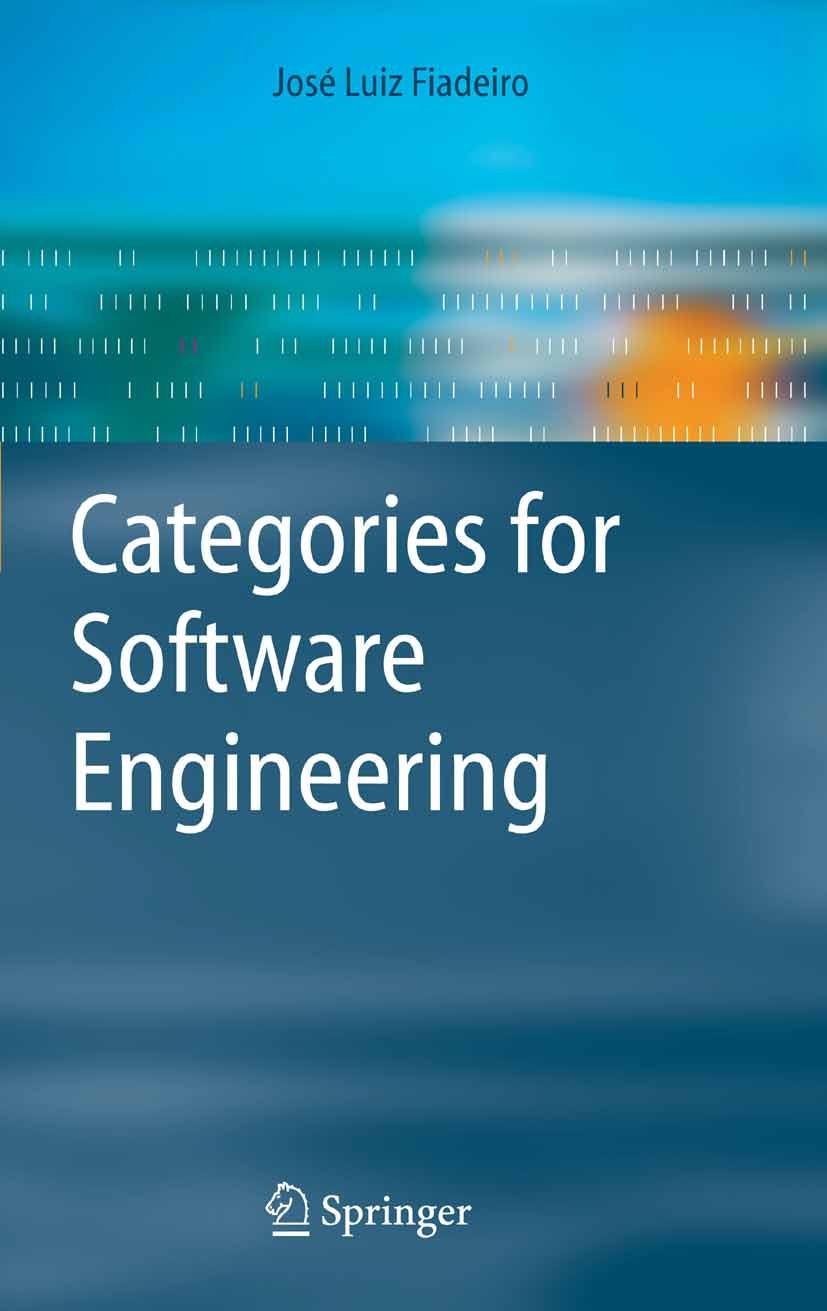| 书目名称 | Categories for Software Engineering | | 编辑 | José Luiz Fiadeiro | | 视频video | http://file.papertrans.cn/223/222539/222539.mp4 | | 概述 | First book demonstrating how category theory can be used for formal software development.The mathematical toolbox for the Software Engineering in the new age of complex interactive systems.Includes su | | 图书封面 |  | | 描述 | Why Another Book on Category Theory? In the past ten years, several books have been published on category t- ory either by computer scientists or having computer scientists as a target audience (e. g. [6, 12, 22, 89, 105], to which a precious collection of little gems [90] and the chapter cum book [91] should be added). Isn‘t the working computer scientist spoilt with choice? Although each of the above mentioned books presents an approach of its own, there is one aspect in common in their view of computer science: the analogy between arrows (morphisms) and (classes of) computations. This "type-theoretic" or "functional" approach corresponds to a view of c- puter science as a science of computation, i. e. a discipline concerned with the study of computational phenomena where the focus is on the nature and organisation of computations. However, there is another view of computer science where the focus is, instead, on the development of computer programs or systems. This is the approach that supports, for instance, software engineering. From this point of view, arrows do not capture computational phenomena, or abstractions thereof, but instead relationships between programs, or abstra | | 出版日期 | Textbook 2005 | | 关键词 | Agent-Oriented Software Engineering; CommUnity; Complex Systems; Component-Based Systems; Formal Methods | | 版次 | 1 | | doi | https://doi.org/10.1007/b138249 | | isbn_softcover | 978-3-642-05888-2 | | isbn_ebook | 978-3-540-26891-8 | | copyright | Springer-Verlag Berlin Heidelberg 2005 |
The information of publication is updating

|
|
 |Archiver|手机版|小黑屋|
派博传思国际
( 京公网安备110108008328)
GMT+8, 2026-1-23 11:02
|Archiver|手机版|小黑屋|
派博传思国际
( 京公网安备110108008328)
GMT+8, 2026-1-23 11:02


